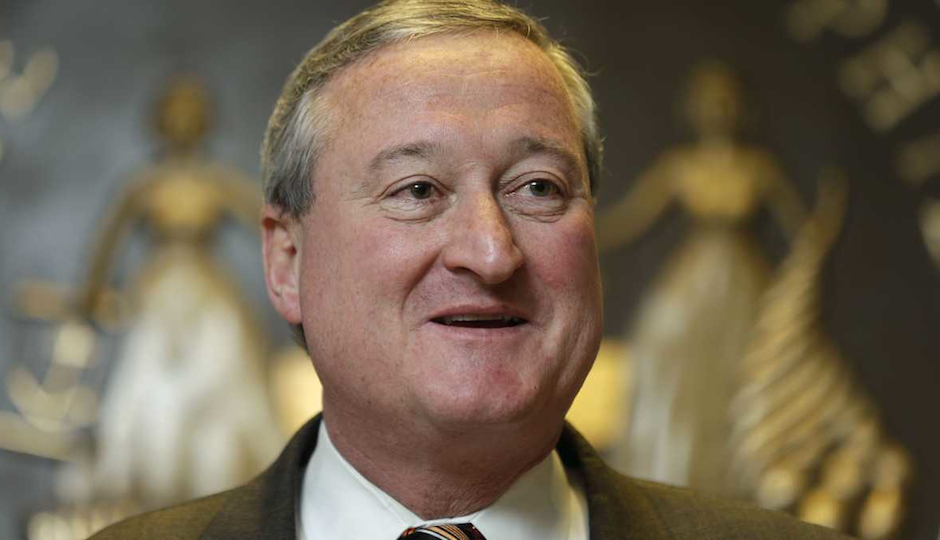Kenney’s Massive, Costly Plan to Make Over Rec Centers, Parks and Libraries

Photo by Jeff Fusco
Mayor Jim Kenney just revealed his most meaningful proposal to date, one that could become the signature accomplishment of his first term if he pulls it off. According to PlanPhilly, which first broke the news, Kenney is going to propose selling $300 million in bonds in order to repair Philadelphia’s parks, recreation centers and libraries at his budget address next week. He hopes to raise another $200 million for the massive initiative from the state, feds and nonprofit organizations.
This is huge. For comparison’s sake, former Mayor John Street’s defining Neighborhood Transformation Initiative was paid for by a $295 million bond issue passed by City Council. Kenney’s proposal is so large that it could trigger a debate about whether this is the right time to pursue such an investment, given that the School District of Philadelphia and the city’s pension system remain deeply underfunded.
Kenney told PlanPhilly that his goal is to provide the city’s neighborhoods with the parks and rec centers that they deserve.
“When we have a football league in South Philadelphia where we have suburban people come into our communities and look at what our kids have to play with, and then our kids go out to the suburbs and play in pristinely manicured fields, it makes us feel like second-class citizens, and we’re not,” he told the website. “I think this investment will give people in every community a sense of equity and fairness, that we care about them and we value them as citizens.”
As a mayoral candidate, Kenney promised to invest in the city’s neighborhoods, which he believes have been somewhat neglected in favor of Center City in recent years. If successful, this would be a big way to keep that promise. It’s also a unique way to attack income inequality, another major theme in Kenney’s campaign: Parks and rec centers provide services to residents who can’t afford to pay for things like dance classes or camp for their children.
Though Kenney has not-so-subtly suggested in the past that the Nutter administration prioritized Center City over other neighborhoods, he will have his predecessor to partly thank if his parks initiative is successful. That’s because the city’s bond rating rose to A+ under Nutter, the highest it has been in decades.
Even with that top-notch rating, it could be a challenge for Kenney to convince lawmakers and the public to support such an expensive plan at the same time that the city’s pension fund and the School District of Philadelphia are struggling, and as he pushes for expanded pre-K and the creation of community schools. As Kenney’s chief financial officer, Rob Dubow, said earlier this month, “The way [the pension’s unfunded liability] shows itself is in the budget decisions we make every year. There is less money for other things. It takes up an increasing part of our budget, which makes it harder to make other investments.”
Kenney may need voters’ direct backing to achieve his goal, too. As PlanPhilly reported, “A sale of city bonds would require voters to approve the initiative via a ballot question, or they could be sold through one of the municipal authorities, like PIDC or the Philadelphia Authority for Industrial Development.” To make matters more complicated, the city’s labor contract with blue-collar union District Council 33 expires in June, and Kenney is expected to be more generous in negotiations than Nutter was.
Despite the difficulties ahead, this represents Kenney’s most ambitious proposal yet, which is particularly noteworthy after a mayoral campaign that many observers saw as lacking in big ideas and specific plans.